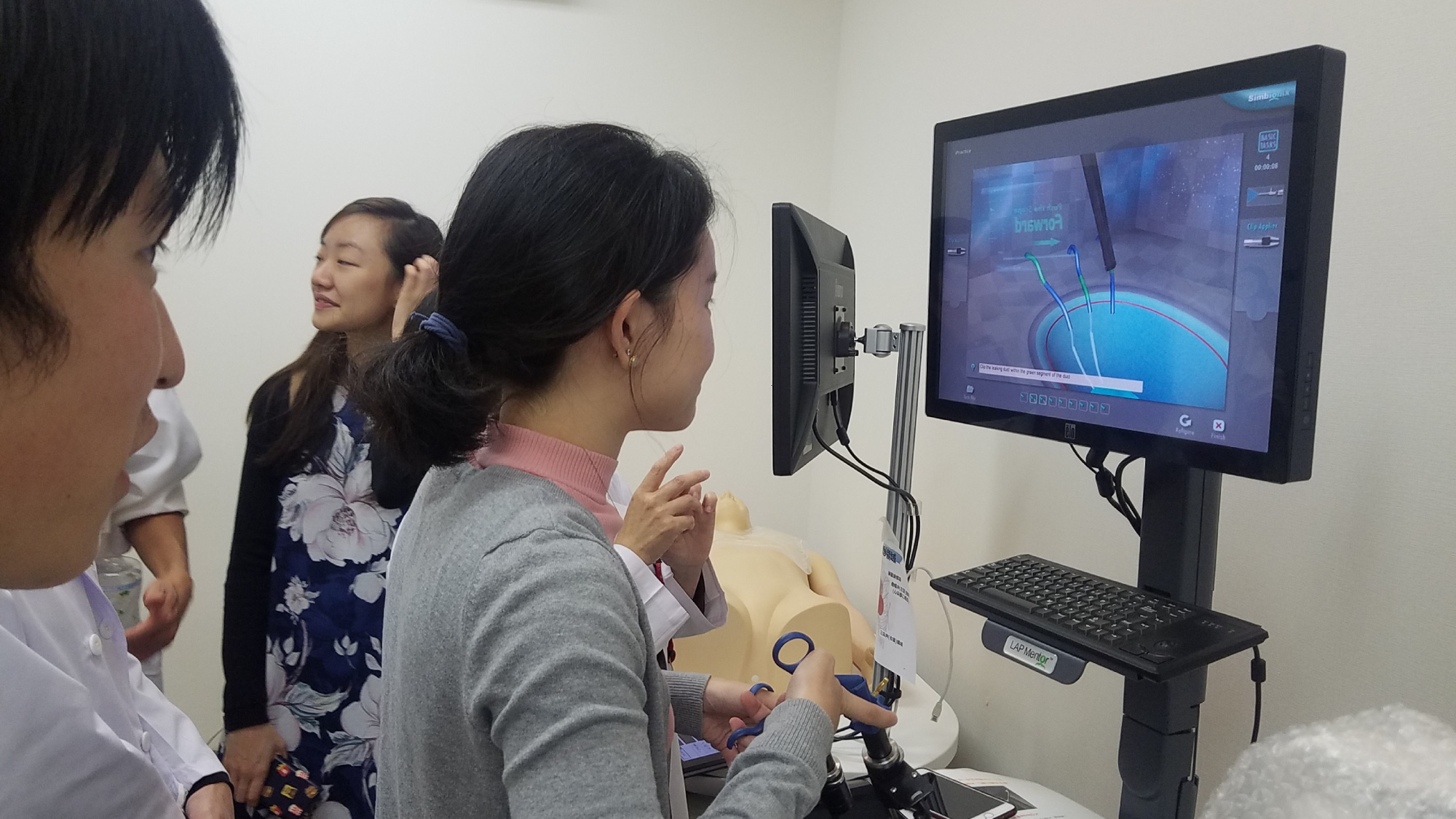A Dose of Japanese Medicine
By Nelson Teo Ming Hao, Lim Zhe Zheng Clyde,
Cassandra Ang Yang Xuan and Melissa Yeo Eng Min
Phase V Medicine Students
The trip
In November 2018, we visited Yokohama City University (YCU) along with Associate Professor Suresh Pillai (Director, Centre for Healthcare Simulation). Having had the pleasure of hosting YCU medical students when they visited us back in August 2018, we were excited to meet old friends and make new ones on this outbound trip.
YCU education workshop
On the first day, our hosts from YCU put together an education workshop with Assoc Prof Pillai as the keynote speaker. Attended by more than 100 faculty members and students, it was a well-received session. Assoc Prof Pillai shared NUS’s approach and experience in medical education using simulation tools and concepts. We also had our minute of fame as we introduced NUS Medicine to our new friends – from our curriculum overview to the unique Student Internship Program we undergo in our final year of training.
Hearing Hisho Kawamura, a final-year medical student from YCU, speak about his experience attending the Advanced Cardiac Life Support and Healthcare Simulation programme in NUS was both nostalgic and inspiring as we learned about how he has been organising informal teaching sessions amongst his peers to share his knowledge from the programme. To end off the workshop, we performed a live demonstration of Advanced Cardiac Life Support to resuscitate a middle-age Japanese gentleman who suffered a cardiac arrest. As stressful as it was to be under the spotlight, we were happy to know that our demonstration was well-received by our hosts and piqued the interest of many YCU students who expressed interest in coming over to join our programme!
Experiencing the YCU simulation centre
Japan is well-known as a leader in technology and innovation, and we caught a glimpse of this at the YCU simulation centre. Tucked away in one of the faculty buildings was a modest and unassuming room filled with a wide array of simulation machines which was open for use 24/7. We were honoured to have senior surgeons from YCU demonstrate the use of oesophagogastroduodenoscopy (OGD) simulators as well as laparoscopic surgery simulators before giving us one-on-one tutorials. Given how medical students typically have little experience, simulators are extremely useful in providing early exposure without compromising patient safety! On the medical side of things, we had the opportunity to experience realistic heart- and lung-sound simulators from different brands and models. Despite the many similarities between our Centres, there were many new tools that we were introduced to and it was a fulfilling afternoon of learning.
Touring YCU medical facilities
We were also invited to visit the two hospitals affiliated with YCU. Starting from the Emergency Department, we witnessed how there is a strong emphasis on multi-disciplinary care as different specialties work together in the ED to manage patients. The easy availability of imaging and the preference towards MRI use was also an obvious difference in the way our systems work. Interestingly, many of the hospital’s facilities were ‘convertibles’, with scan rooms designed for conversion to a minor operating theatre or angiography suite when needed! Perhaps such versatility would also be useful back in Singapore where space is often limited. We ended off the hospital tour by visiting their helicopter landing pad, which we later learned is sometimes used to evacuate distressed hikers from nearby Mount Fuji. As a grand finale, Assoc Prof Pillai also had the chance to give directions and help guide a helicopter (sans the actual helicopter).
Japanese culture
Polite, formal and humble – these are some of the words that we normally associate with Japanese culture. But above and beyond these was their impeccable hospitality that defined Japanese culture during our short stay. Senior faculty members from YCU personally welcomed us and hosted us to a delightful traditional Japanese dinner at a restaurant that overlooks the captivating Yokohama skyline. Despite being busy with clinical duties, our hosts made it a point to ensure that we were always accompanied. Even on their day off, they brought us around their beautiful city and introduced us to many interesting aspects about Japanese culture and its rich heritage. Their kindness and warm hospitality are certainly things we can learn from!
Conclusion
Being part of the YCU International Education Workshop was indeed an eye-opener for us. We strongly believe that both parties – YCU and NUS – have learnt much from each other through the inbound and outbound trips. Yet, there is more that we can help each other with and we hope this partnership will continue for years to come. We would like to thank our hosts from YCU for their kind hospitality and the faculty in NUS for their support, without which this exchange would not have been possible.

Laparoscopic Simulator at YCU Simulation Centre
